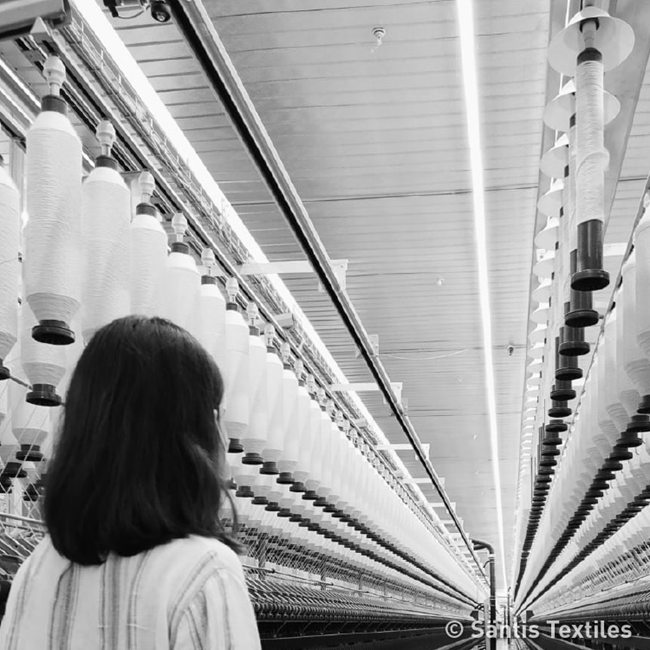Regenerating waste into premium cotton products

16 22
September 2027
Messegelaende HannoverGermany

Many US companies are now realising the sustainable advantages of reshoring or near-shoring their manufacturing operations.
When textile production started to migrate from the USA in the 1980s and 90s – initially to Mexico and then to Asia – many of our domestic companies went out of business, while others reinvented themselves to go after markets that were not so volatile or needed to be domestically based.
The possibilities of reshoring or near-shoring had already started prior to the Covid-19 pandemic, as new digital concepts for small lot, just-in-time production and personalisation began to arise. At the same time, tariffs were also imposed on many textile imports from China to the USA from 2018, with the intention of levelling the playing field. But while this helped the domestic industry in some respects, the divide was still too wide and textiles imported from Asia remained cheaper.
What happened during the pandemic really changed the minds of many people in the USA. When communities couldn’t even get PPE to protect their frontline workers and were relying on imports which were suddenly unavailable, the response was on a personal and emotional level.
As a result of that experience, a significant number of US companies have now decided that no matter how painful it is, they will not be held hostage to that purchasing model again. Other companies, it has to be said, have developed short-term amnesia about what happened and gone back to business as usual, but overall, there remains a determination by many to create opportunities and new jobs in the USA or in neighbouring countries in Mexico and Central America.
My own company, MMI Textiles, has just opened a new manufacturing plant in Lenoir, North Carolina, having grown much larger than I ever anticipated. When I started it back in 1997 there was only me – MMI stands for me, myself and I – and I began solely as a fabric manufacturer’s representative.
The company has evolved organically, as well as by some acquisitions, as our customer base grew and the relationships with them got deeper. It became all about solving problems – business is really very simple in that respect – and we continued to add product lines in response to the needs of our customers.
MMI does a lot of work with the US military and for that part of the business, everything has to be 100% Made in the USA, as stipulated by the Berry Amendment. We also have commercial customers who have tried really hard to retain the US manufacturing of sewn or finished products, but use imported raw materials to help lower costs. We support them as an importer with significant resources, while at the same time providing products made in the USA, including by ourselves.

A Berry-type Amendment is also now in the process of being implemented for PPE which, when finally passed as a bill, will be a very big boost for US domestic manufacturing. Since the start of the Covid-19 pandemic, digital technologies have also contributed significantly to opportunities to relocate manufacturing closer to home.
At the beginning of 2020, we were all new to platforms like Zoom and Teams, but now they have become second nature. Nobody was travelling and everybody was on these new network calls, and it makes a really big difference to be able to see the person you were communicating with. Now we know it is possible to do many things without travelling so much.
In the past, we would also hire interpreters to visit exhibitions, but even before the pandemic, communication was being made simpler with translation apps. The translate option on Zoom is now fantastic.
There are still time zone challenges, but these improvements should not be under-estimated – think of the carbon emissions that are saved alone, for every journey that is no longer deemed necessary.
Meanwhile, some of the biggest advances made by the textile industry in recent years have centred on the sustainable development of fibres and finishes, as well as the efforts to move circularity forward in our industry – from fibre to fabric to finished product, and then recycling that finished product back to fibre.
It’s a monumental task to accomplish, but starting with recycling requirements for households on textile items – as is happening in Europe now – will make a difference. We have also made great strides in waterless dyeing and finishing capabilities to help reduce our negative impact on our water ways.
The textile industry is certainly on a journey towards circularity, and reshoring or near-shoring will play a big role in that going forward, not just in the USA, but globally.

Amy Bircher, Chair of the Board, IFAI
About Amy Bircher
Amy Bircher is the owner of MMI Textiles, headquartered in Brooklyn, Ohio, and the current chair of the board of the Industrial Fabrics Association International (IFAI) based in Roseville, Minnesota.
Subscribe to our mailing list and stay up-to-date with news and developments in ITMA and the textile and garment industry.